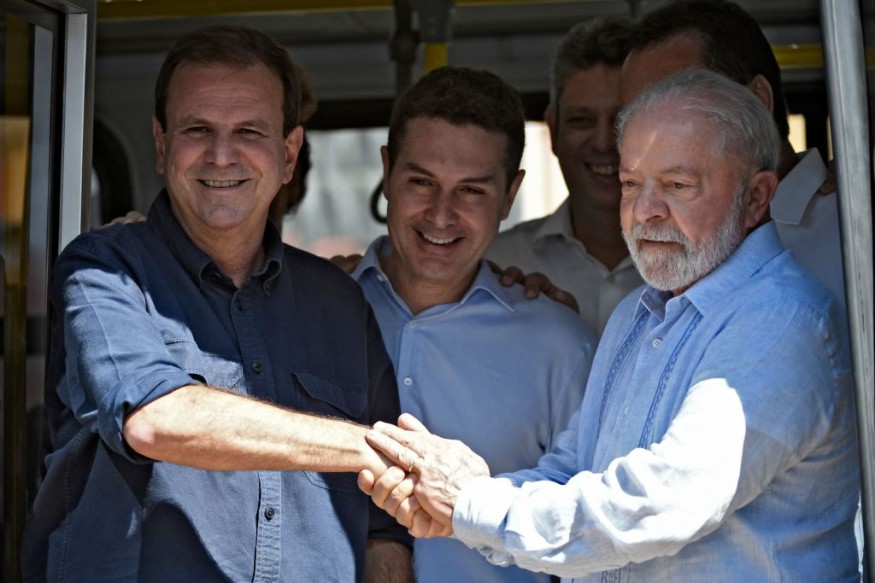Brazil: Lula's Government Explains 'Growth Acceleration Plan' With $347.5 Billion Budget

The recently unveiled Brazil Growth Acceleration Plan envisions investments of 1.7 trillion reais ($347.5 billion) aimed at fostering sustainable development through a blend of public-private partnerships, alongside a robust ecological transition agenda, according to government officials, per Reuters.
President Luiz Inacio Lula da Silva, who returned to office in January with a pledge to revitalize economic prosperity and prioritize sustainable practices, has hailed this initiative as a cornerstone of his presidency.
At the launch event in Rio de Janeiro, Lula declared, "My third term as president starts today. Growth will be correct, fast, and sustainable."
The plan's estimated impact includes creating 4 million jobs, with the bulk of investments, approximately $264 billion, projected to be deployed by the conclusion of Lula's term in 2026.
However, the proportion sourced from public funds was not explicitly detailed.
Lula's supporters have likened this endeavor to President Joe Biden's efforts to stimulate the U.S. economy through substantial investments in infrastructure and clean energy.
Although the proposal shares the name of Lula's 2007 Growth Acceleration Plan (PAC), the current iteration focuses on greener development, complementing traditional infrastructure investment.
The funding strategy involves a combination of federal funds, concessions, and public-private partnerships to support a range of projects spanning transportation, sanitation, and ecological transition.
An official statement reveals that $220 billion will stem from public funds, accompanied by an additional $125 billion from the private sector.
The government's plan outlines that 371 billion reais, equivalent to 22% of the total, will be contributed by the federal government, while state-owned enterprises such as Petrobras (PETR4.SA), a major oil company, will inject 343 billion reais.
Energy transition projects will receive a substantial allocation of $110 billion.
READ NEXT : Brazil Amazon Summit
Brazil Growth Acceleration Plan Does Not Include Budget for Paving BR-319
Notably, the Brazil Growth Acceleration Plan will not impede the government's commitment to eliminate Brazil's budget deficit by 2024, as Finance Minister Fernando Haddad reassured.
All public investments within the plan will adhere to spending limits defined by a new fiscal framework currently being finalized by Brazil's congress.
However, the PAC does not incorporate funding for the paving of the BR-319 highway, which traverses ecologically pristine portions of the Amazon rainforest, despite the Bolsonaro government's intention to proceed with the project.
Environmentalists caution that this initiative could lead to irreversible damage, according to Bloomberg.
Haddad explained that the ecological aspect of the plan is centered on establishing a regulated carbon credit market, issuing sustainable sovereign bonds, and reconfiguring a climate fund to mitigate emissions.
He stated, "We'll accelerate growth in our country and help stop the degradation of our planet."
Previous Brazil Growth Acceleration Plan Handled by Ex-President Dilma Rousseff Faces Woes
The preceding Brazil Growth Acceleration Plan, administered during Lula's tenure and continued under former President Dilma Rousseff, led to significant public investments, including highways, bridges, hydroelectric projects, refineries, and transmission lines, Bloomberg Línea reports.
However, a number of projects managed by large local infrastructure companies became embroiled in corruption investigations, contributing to Operation Car Wash, a far-reaching corruption probe that led to the incarceration of numerous business and political leaders, including Lula, temporarily.
Certain projects also faced criticism for their environmental impact.
For instance, the PAC program supported the construction of oil refineries, such as a major petrochemical complex in Rio de Janeiro, and the Belo Monte dam, a hydroelectric project in the Amazon rainforest, which elicited strong opposition from Indigenous communities and environmentalists.
The legacy of the prior program's challenges, including corruption inquiries and environmental concerns, may pose obstacles to the new plan.
The investigations led several involved companies into bankruptcy, ultimately disrupting an era of extensive public investment.
As a result, the government will need to navigate significant projects without the participation of major contractors that were involved in the past.
This is owned by Latin Post.
Written by: Bert Hoover
WATCH: Brazil's economic boom: Insights from Adrian Zduńczyk | World Today - From TVP World
Subscribe to Latin Post!
Sign up for our free newsletter for the Latest coverage!

















